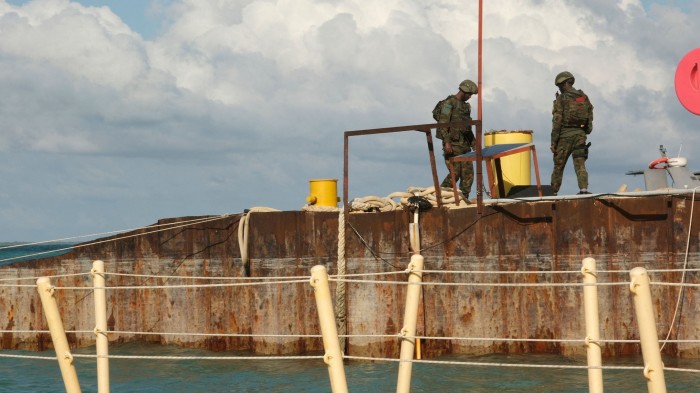Unlock the Editor’s Digest for free
Roula Khalaf, Editor of the FT, selects her favourite stories in this weekly newsletter.
TotalEnergies has further delayed its troubled $20bn liquefied natural gas project in Mozambique as security concerns and political uncertainty dog one of Africa’s biggest energy investments.
The LNG development, which has the potential to transform Mozambique’s economy, was launched in 2020. It was Africa’s largest foreign direct investment project when it was announced.
But the company activated a contractual get-out, known as force majeure, in 2021 after Islamist insurgents killed dozens of people including foreign workers. The attack was near a company site, where gas was planned to be converted into liquid, in Mozambique’s northern Cabo Delgado province.
Plans to restart the project by the end of 2024 have slipped after violence flared following October’s disputed presidential election, putting at risk a goal to begin production in 2029.
Patrick Pouyanné, chief executive of the French oil and gas major, told investors in New York in October that he hoped to restart the project by the end of last year, reiterating the 2029 production goal.
He said there had been “progress on the ground” through an alliance between Mozambique and Rwanda in which Kigali has deployed 4,000 troops to fight an insurgency that has killed at least 3,000 people and displaced hundreds of thousands more.
Pouyanné also said at the October investor day that he planned to meet the new Mozambican president after elections that month, but that did not happen, the company told the FT.
President Daniel Chapo, who was sworn in this month, made protection of the gas project and suppression of the insurgency a plank of his election campaign.
Many Mozambicans, particularly young urbanites, are convinced the election was stolen, complicating the public perception of any meeting.
“The priority is to restore peace and security in the Cabo Delgado and the lifting of the force majeure,” TotalEnergies said. It needed “public services” and “normal life” to resume for the project to restart, the company added.
More than 350 people have been killed since the October poll in anti-government protests, which have disrupted businesses, closed land borders and shut down ports.
Opposition candidate Venâncio Mondlane has held his own presidential “inauguration” and threatened further protests if his demands, which included the release of political prisoners, were not met within three months.
The project also faces possible delays over uncertainties on funding made before 2020. US finance through a $4.7bn loan was frozen after the force majeure declaration, while the UK has since ended export financing for fossil fuel projects.
The development in the Rovuma Basin, in which the French company has a 26.5 per cent stake, has a capacity of 13mn tonnes of LNG per year.
This makes it one of the French company’s largest sources of LNG in a pipeline of projects set to start by 2030, according to a presentation at the company’s October investor day.
The group is also involved in LNG projects in Qatar, Mexico, the US, Nigeria and Oman.
Cabo Delgado, on Mozambique’s Indian Ocean coast, is ideally located to meet growing demand for LNG in Asian markets “as opposed to Atlantic-facing projects”, said James Waddell, an analyst at Energy Aspects.
“This project remains profitable because there is a portfolio, in particular, of LNG sales, which is quite attractive,” Pouyanné said in October.
Read the full article here

